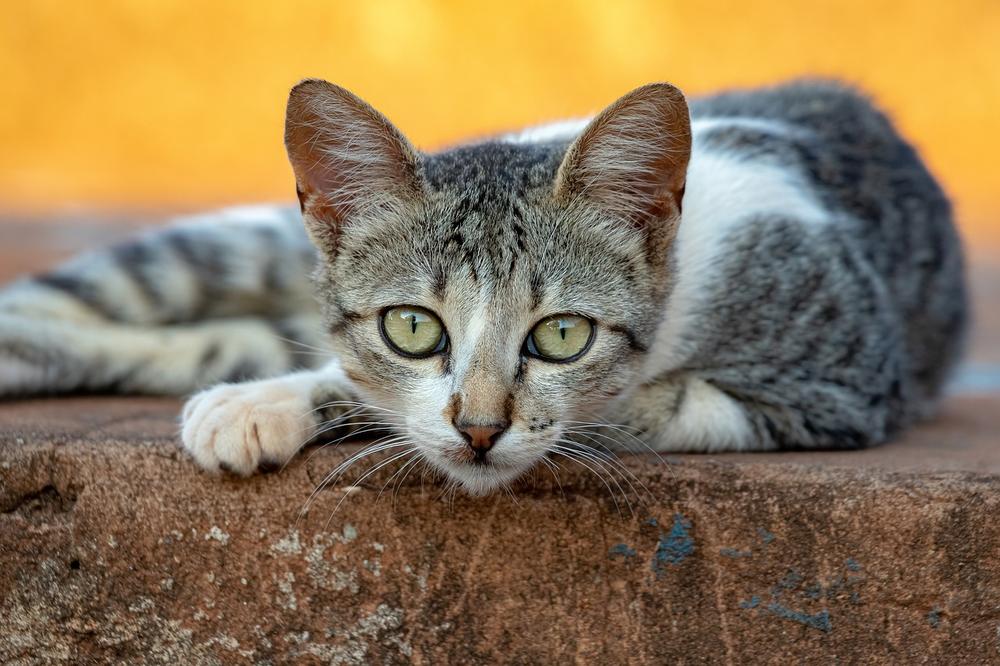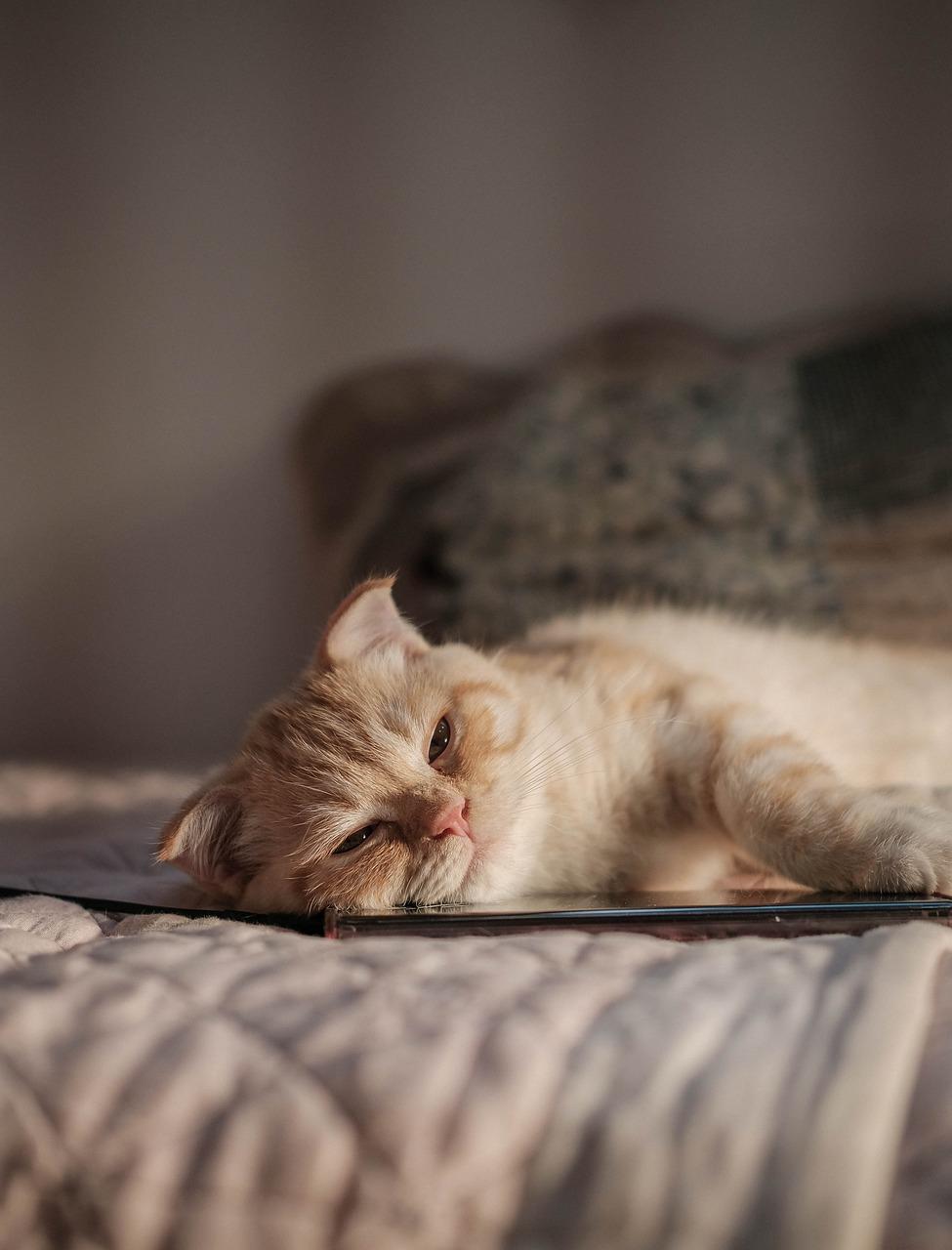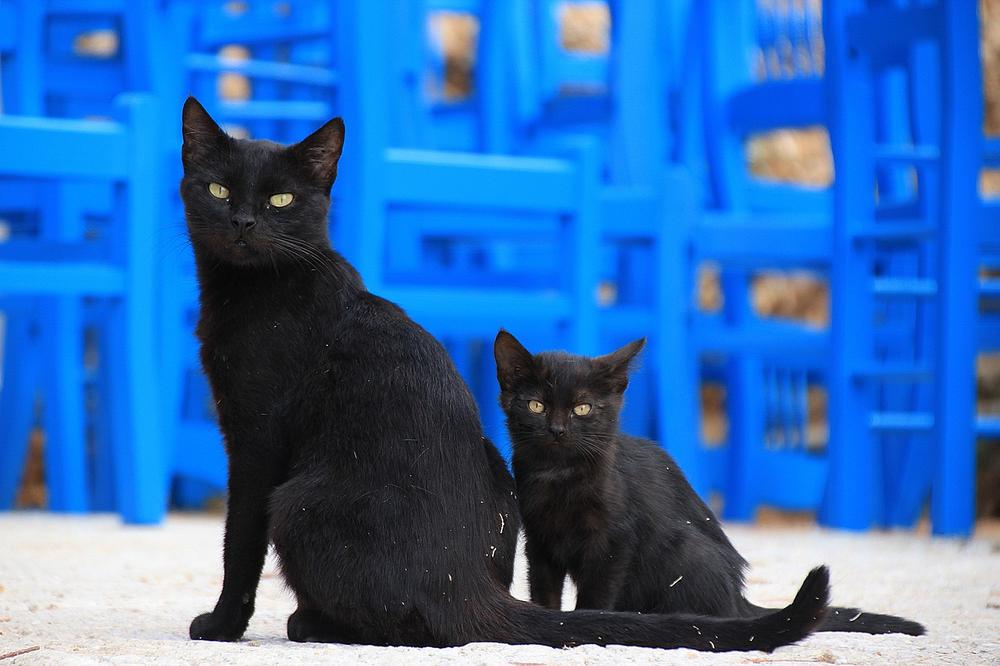Why Do Some Cats Hiss When They Play? (Honest Answer)

Curious why some cats hiss when they play?
Intrigued by their bizarre behavior?
Ever wondered what's really going on in their mischievous little minds? 😺
Well, my feline aficionados, let's unravel this puzzling phenomenon together.
Buckle up, 'cause we're about to dive deep.
Why Do Cats Hiss?
Cats hiss to communicate discomfort or unease, not just aggression. It can be triggered by fear, anxiety, confrontation, or playtime overload. Hissing is their way of setting boundaries and protecting their personal space, expressing their feelings effectively.
Cats hiss for various reasons, you know. It's not always aggression.
Hissing is actually a way cats communicate their discomfort or unease - a little warning sign that they're not happy, I guess.
It can happen because of fear, anxiety, confrontation, or even during playtime.
Sometimes your kitty just gets overwhelmed and lets out a hissy fit!
When cats hiss, it's like saying "back off!" They feel threatened by other cats, humans, or strange objects entering their territory.

Contrary to what you might think, cats don't hiss to show aggression.
Instead, it's their way of effectively expressing their feelings to you.
It's all about setting boundaries and protecting their personal space, really.
So next time you hear your cat hiss, try to understand where they're coming from. Give them the space they need and maybe some treats to help them calm down.
Main points I'll expand upon further down this article:
- Hissing during play can indicate discomfort or excitement in cats.
- Recognize signs of stress and discomfort to handle a hissing cat.
- Diffuse tense situations with treats or toys during play sessions.
- Differentiate rough play from actual fighting and seek veterinary advice.
- Punishing a hissing cat is counterproductive; it's their way of saying stop.
- Hissing can indicate pain or an underlying health issue.
- Manage and diffuse aggressive behavior, especially if hissing occurs frequently or escalates.
- Understand cat body language, vocalizations, and signals for a harmonious relationship.
- Playtime is crucial for practicing innate behaviors and building social bonds.
- Changes in play or interaction could indicate a medical issue, seek professional help.
But do you ever wonder what actually happens in a cat's brain when they hiss?
Well, I'm here to satisfy your curiosity and reveal the fascinating effects hissing has on our feline friends!
Let's dive into the science of it all...
What’s Going on Inside the Brain of a Hissing Cat?
Hissing in cats can be triggered by different factors, but it ultimately serves an important purpose.
When a cat hisses, it sets off the release of stress hormones in their brain, preparing them for either confrontation or escape.
This behavior often arises when cats feel uncomfortable during grooming sessions, indicating their anxiety or displeasure.
Moreover, some cats simply possess a more playful nature that causes them to become highly excited and hiss during playtime.

Understanding this feline behavior is crucial in providing the appropriate care and ensuring our feline friends have happy and stress-free lives.
So, next time your cat hisses, remember that they might just need some understanding and support from you.
Moreover, if you're interested in understanding more about your cat's behavior, I highly recommend reading my detailed guide on why cats slap with their tails.
This article explores possible reasons and sheds light on whether they're simply trying to play or communicate something.
To learn more, check out Why Does My Cat Slap Me With His Tail.
You'll find all the answers you've been seeking.
How to Handle a Cat Hissing at You
Here's how to handle a cat hissing at you in 11 simple steps:
- Stay calm and keep your cool.
- Avoid staring directly into the cat's eyes.
- Watch out for signs of stress or discomfort.
- Notice defensive body language from the cat.
- Be aware of any aggressive actions.
- Pay attention to other signals the cat is giving.
- Diffuse tense situations by offering treats or playing with toys.
- Know the difference between rough play and real fighting.
- If there are changes in behavior, consult a vet.
- Understand that hissing can be a sign of pain or health problems.
- Don't punish the cat; remember, hissing is a way of communicating.
Just remember...
Clapping your hands can break up serious fights, but be cautious about getting involved directly. 😺
In conclusion, understanding why cats hiss and managing their aggressive behavior are crucial, especially if hissing occurs often or starts escalating towards physical aggression.
In conclusion, understanding why cats hiss and managing their aggressive behavior are crucial.
But if you're also wondering why your cat bites your face and seeking possible explanations or solutions, I recommend checking out my article, Why Does My Cat Bite My Face.
It provides helpful insights for dealing with this behavior and addressing any underlying issues.
What Humans Can Learn From Cat Hissing
To learn from cat hissing, follow these 7 insightful tips:
- Respect personal boundaries.
- Observe and understand cat behavior.
- Familiarize yourself with their body language.
- Pay attention to vocalizations and signals.
- Remember that cats have different communication styles than humans.
- Engage in playtime for practicing innate behaviors.
- Build social bonds within the same social group.
Furthermore, please bear in mind that cats often display various social behaviors, especially among littermates who have strong bonds. By following these tips, you can strengthen your relationship with cats and create a harmonious environment.
But what happens when a cat doesn't hiss during play?
Don't fret just yet, because not all cats express their discomfort through hissing.
In fact, changes in your cat's behavior during play or interaction with other cats might be indicative of an underlying medical issue.
Curiosity piqued?
Let's delve into the frequency and triggers for hissing, so you can stay alert to any warning signs your feline friend may exhibit...
Understanding Cat Hissing Behavior and Warning Signs
Pay attention to warning signs of hissing
Understanding why cats hiss is crucial for the well-being of your feline friend.
When cats hiss, it's their way of letting you know that something isn't right.
If your cat starts hissing more often or in new situations, it could be a sign of an underlying health issue. Make sure you pay attention to any changes in their behavior during play or when interacting with other cats.
Each cat has different triggers for hissing.

Some may feel threatened or afraid, while others use hissing as a sign of dominance.
By understanding what makes your cat hiss, you can create a peaceful environment and reduce their stress levels.
The importance of being attentive to these warning signs
You should be attentive when your cat hisses because it means they're feeling uneasy or uncomfortable, and ignoring these signals can lead to further aggression or dangerous situations. By closely monitoring their behavior and intervening when needed, you can ensure their safety and maintain a harmonious living environment.
Creating a secure space where your cat feels understood will strengthen the bond between you and your furry companion.
Hissing behavior: A call for your attention
Cats hiss as a form of communication, telling you that something isn't quite right.
It might be discomfort, fear, or territoriality – whatever it is, their hissing is a gentle reminder for you to address their needs.
To respond appropriately to your cat's hissing, pay attention to their body language, address any potential issues, and provide them with a supportive environment. Remember not to punish or scold your cat for hissing, as this will only escalate the situation and damage the trust in your relationship.
By taking the time to understand why cats hiss and responding compassionately, you can develop a healthy and harmonious connection with your feline companion.
And that wraps up today's article.
If you wish to read more of my useful articles, I recommend you check out some of these: Why Does My Cat Follow Me Then Run Away, Why Do Cats Slap, Why Does My Cat Lick My Armpits, Why Does My Cat Bite Me When I Sleep, and Why Does My Cat Eat My Other Cats Whiskers
Talk soon,
-Sarah Davis